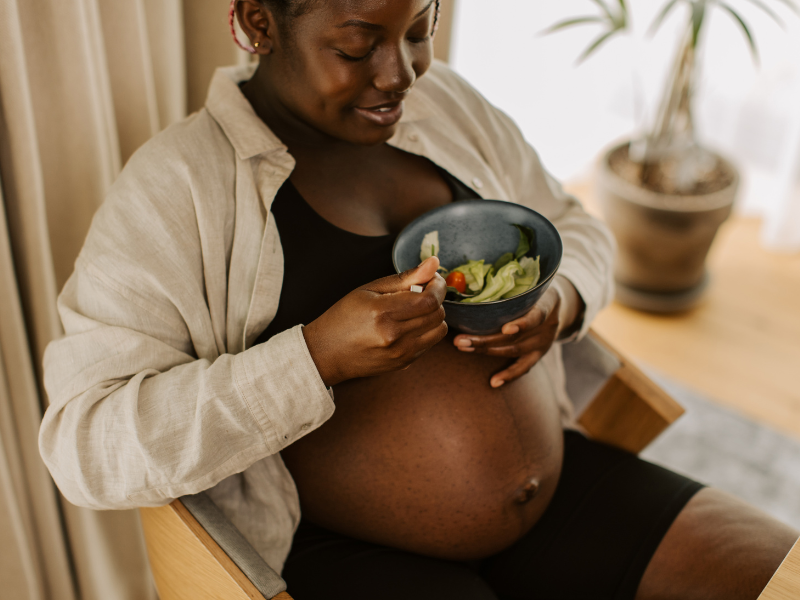
Hey there, it’s Brydee again! Being pregnant is such an exciting time, but it comes with its own set of challenges, especially when it comes to what you can and can’t eat. Here’s a quick rundown to help you navigate your diet and keep you and your baby safe.
Dairy and Eggs
Why should I avoid certain cheeses while pregnant? – In cheeses with a high water or mold content, like soft cheese, blue cheese, and goat’s cheese, there can sometimes be a bacteria called listeria. While Listeria infections are rare, they can cause miscarriage or stillbirth, so it’s better to avoid these. Hard cheeses like cheddar are safe, though!
Milk
Stick to pasteurised milk to avoid bacteria. This also applies to sheep’s milk and goat’s milk.
Yoghurt and Ice Cream
As long as they’re made with pasteurised milk, shop-bought yoghurt and ice-cream are safe. If you’re making ice-cream at home, consider using an egg substitute to avoid the small risk of salmonella.
Eggs
Eggs can sometimes contain salmonella, which can make you very ill, although it won’t harm your baby. The latest advice is that eggs produced in the UK that adhere to the Lion Code are safe to consume, even if raw or lightly cooked.
Meat and Fish
Can I eat meat during pregnancy? – Yes, but make sure it’s completely cooked. Avoid raw or underdone meat to prevent toxoplasmosis. Also, stay away from liver and pate (including vegetarian types) to avoid harmful levels of vitamin A, and potential exposure to listeria.
Can I eat fish and shellfish while pregnant?
Fish is great for you and your baby’s development, but avoid those high in mercury, like marlin, swordfish, and shark. Limit oily fish such as mackerel, salmon, and sardines to three portions a week. You can have as much white fish and cooked shellfish as you like, but avoid cold smoked fish and sushi due to the risk of listeriosis.
Caffeine and Alcohol
Can I have caffeine during pregnancy? – You don’t have to give it up entirely, but limit your intake to 200mg a day – that’s about one Americano and a small bar of chocolate. Too much caffeine can lead to low birth weight and may increase your risk of miscarriage.
Can I drink alcohol while I’m pregnant?
The safest bet is to avoid all alcohol. It crosses the placenta, and your baby’s liver can’t process it as fast as yours, increasing risks of miscarriage and low birth weight, among other complications. If you find out you’ve been drinking before knowing you were pregnant, don’t stress. Just avoid it going forward and plan to enjoy that boozy night out after baby arrives!
Soil and Hygiene
Although you’re probably not eating soil, make sure you wash fruits and veggies thoroughly to avoid toxoplasma, which can be found in soil. The same goes for unpasteurised or “freshly squeezed” juice.
Vitamins and Supplements
Avoid high-dose multivitamins, fish liver oil supplements, and any that contain vitamin A. Do stick to taking folic acid, especially in the first 12 weeks, as it’s crucial for your baby’s development.
Other Foods and Tips
Can I eat peanuts in pregnancy? – Yes, the latest research shows no clear evidence that eating or avoiding peanuts affects the development of a nut allergy in your baby.
What about liquorice?
Feel free to eat liquorice sweets or drink liquorice tea in moderation, but steer clear of the herbal remedy liquorice root, as it’s been linked to premature labor.
Remember to use a food thermometer when cooking meat or fish, avoid prepackaged salads (especially those with eggs, chicken, ham, or seafood), and make sure to reheat leftovers until they’re steaming.
By sticking to these guidelines, you’ll be doing your best to keep you and your baby healthy and happy. Cheers to a wonderful pregnancy journey!
Comments